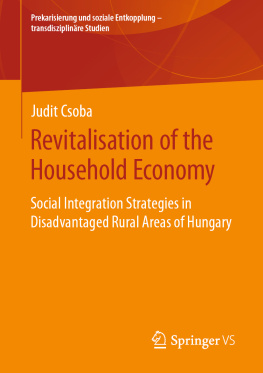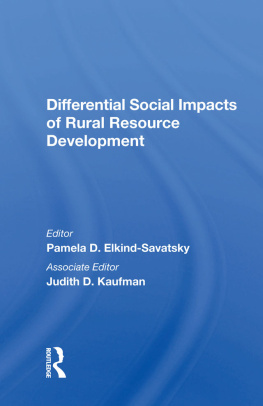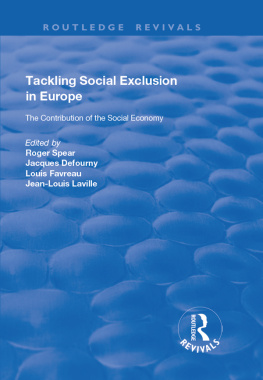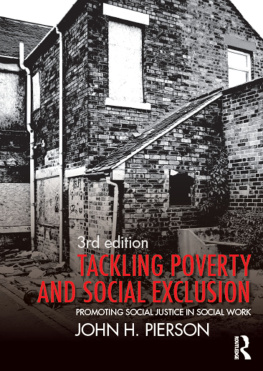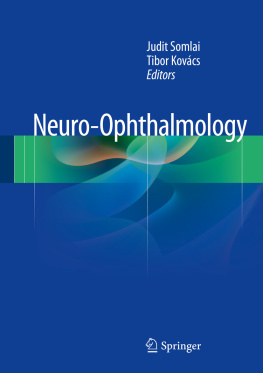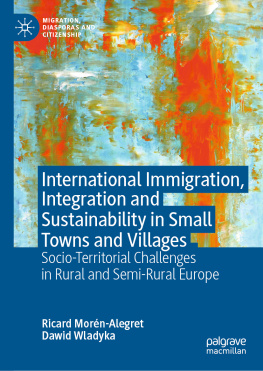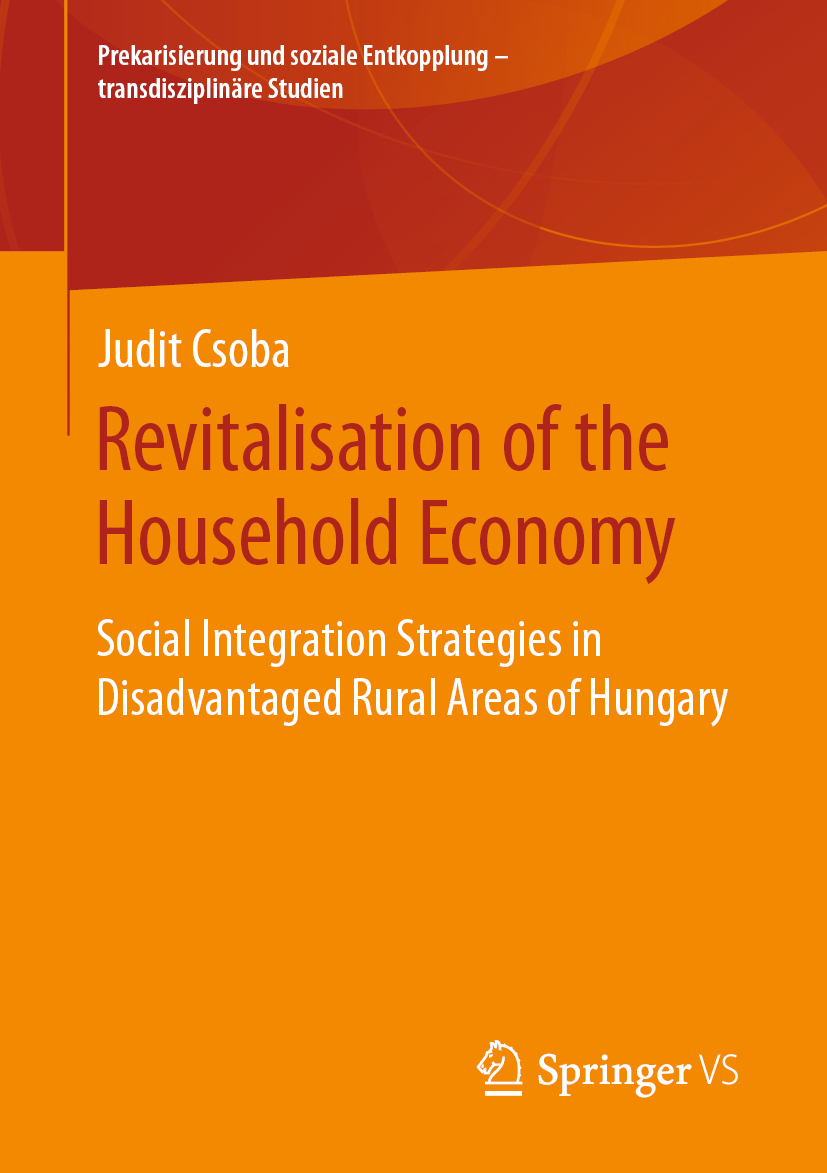Prekarisierung und soziale Entkopplung transdisziplinre Studien
Series Editors
Rolf Hepp
Institut fr Soziologie, FU Berlin, Berlin, Germany
Robert Riesinger
Journalismus und Public Relations (PR), FH Joanneum Gesellschaft mbH, Graz, Austria
David Kergel
HAWK Hildesheim, Hildesheim, Germany
Birte Heidkamp-Kergel
E-Learning Zentrum, Hochschule Rhein-Waal, Kamp-Lintfort, Germany
Die Zunahme sozialer Unsicherheit und kultureller Verunsicherung in postfordistischen Gesellschaften erzeugt einen Status Quo, in dem Prozesse der Prekarisierung und der sozialen Entkopplung (Robert Castel) verstrkt das Zentrum der Gesellschaft durchziehen. Der Verlust sozialer Garantien fhrt dabei zur Aushhlung sozialstaatlicher Errungenschaften. Dadurch werden die Lebenskontexte und das Alltagsleben der Menschen stark verndert.
Das sozialwissenschaftliche Netzwerk S.U.P.I. beschftigt sich auf europischer Ebene seit Jahren mit den gegenwrtigen Formen von sozialer Unsicherheit, Prekaritt und Ungleichheit. Die Reihe, herausgegeben von Mitgliedern des Netzwerks, prsentiert transdisziplinre Forschungen zu den sozialen und kulturellen Transformationen in den sozialstaatlich geprgten Demokratien. Sie versteht sich als Forum fr die Diskussion in nationalen, europischen und auch globalen Kontexten. Ebenen einer kritischen Analyse aus multidisziplinren und feldorientierten Perspektiven werden dabei initiiert, aufgenommen und untersttzt. berschreitung und ffnung dienen programmatisch als Wegmarken fr theoretisch-analytische Beitrge und empirisch-angewandte Forschung.
The increase of social insecurity in post-Fordist societies effect fundamental societal changes. As a consequence Precarity and Disaffiliation (Robert Castel) affecting increasingly the center of society. The loss of social guarantees leads to an erosion of the welfare state. As a result, living situations and everyday life are deeply changed.
The S.U.P.I.-Project (Social Uncertainty, Precarity, Inequality) is an European Research Group established by European and international scholars and experts. The network has been concerned with present forms of social insecurity, precariousness and inequality at European level for years. Edited by members of the network, the book series presents transdisciplinary research on aspects of social and cultural transformations in the democracies which are characterized by the welfare state. The book series opens a discursive space for discussions in national, European and global contexts. The contributions of the book series provide critical analyses from multidisciplinaryperspectives, theoretical-analytical reflections and empirical-applied research.
Judit Csoba
Revitalisation of the Household Economy
Social Integration Strategies in Disadvantaged Rural Areas of Hungary
This book is based on research undertaken for Innovative Social Investment Strengthening Communities in Europe (InnoSI). InnoSI received funding from the European Commission Horizon 2020 programme Societal Challenges: European Societies after the Crisis, Grant Agreement Number 649189. The work was also supported by the EFOP-3.6.1-16-2016-00022 project. The project is co-financed by the European Union and the European Social Fund.
Judit Csoba
University of Debrecen, Debrecen, Hungary
ISSN 2509-3266 e-ISSN 2509-3274
Prekarisierung und soziale Entkopplung transdisziplinre Studien
ISBN 978-3-658-29349-9 e-ISBN 978-3-658-29350-5
https://doi.org/10.1007/978-3-658-29350-5
Springer Fachmedien Wiesbaden GmbH, part of Springer Nature 2020
This work is subject to copyright. All rights are reserved by the Publisher, whether the whole or part of the material is concerned, specifically the rights of translation, reprinting, reuse of illustrations, recitation, broadcasting, reproduction on microfilms or in any other physical way, and transmission or information storage and retrieval, electronic adaptation, computer software, or by similar or dissimilar methodology now known or hereafter developed.
The use of general descriptive names, registered names, trademarks, service marks, etc. in this publication does not imply, even in the absence of a specific statement, that such names are exempt from the relevant protective laws and regulations and therefore free for general use.
The publisher, the authors and the editors are safe to assume that the advice and information in this book are believed to be true and accurate at the date of publication. Neither the publisher nor the authors or the editors give a warranty, expressed or implied, with respect to the material contained herein or for any errors or omissions that may have been made. The publisher remains neutral with regard to jurisdictional claims in published maps and institutional affiliations.
Planung/Lektorat: Cori Antonia Mackrodt
This Springer VS imprint is published by the registered company Springer Fachmedien Wiesbaden GmbH part of Springer Nature.
The registered company address is: Abraham-Lincoln-Str. 46, 65189 Wiesbaden, Germany
Preface
Following the fall of the communist regime in Hungary, in order to reduce the then increasing poverty in smaller villages of agricultural regions, the government was seeking local solutions for employment that combined the objectives and characteristics of both the private and the state sector. An additional goal was to create an alternative to passive benefits: an active social policy programme that could reinforce local communities as well as diminish social and economic tensions that had come into existence due to the lack of income. The Bureau of Crisis Management Programmes of the Ministry of Welfare aimed to reach these goals when developing the concept of the social land programme in 1992.
In the 25 years following its inception, the social land programme provided services as well as benefits for those socially disadvantaged individuals who did not have the means to engage in agricultural production, so that they could participate in backyard farming as well as livestock farming. The supported activities included the production of goods, their marketing, the planning of sales, reinforcing cooperation within a network, and the acquisition of needed tools, equipment, and machinery as well.The main objective of the programme was to enhance the ability of involved household to achieve self-maintenance and to assist their integration into the labour market and society.
The aim of this volume is to review the characteristics of the social land programme, the milestones of the past 25 years, the changing circumstances, survival strategies, and options for improvement. The analysis specifically targets the period following the 2008 economic crisis as well as todays framework and practice.
The study of the social land programme in the last three years was realised through the InnoSI(Innovative Social Investment: Strengthening communities in Europe)project of the Horizon 2020 programme. Throughout the research project, we had examined the model experiments of social innovation and social investment with the participation of ten European countries, through two case studies per country. During the analysis of the case studies, the international research community was studying the theoretical and practical traits of social innovation that aims to change the welfare paradigm, as well as the individual and community aspects, and functional peculiarities of active social engagement.

